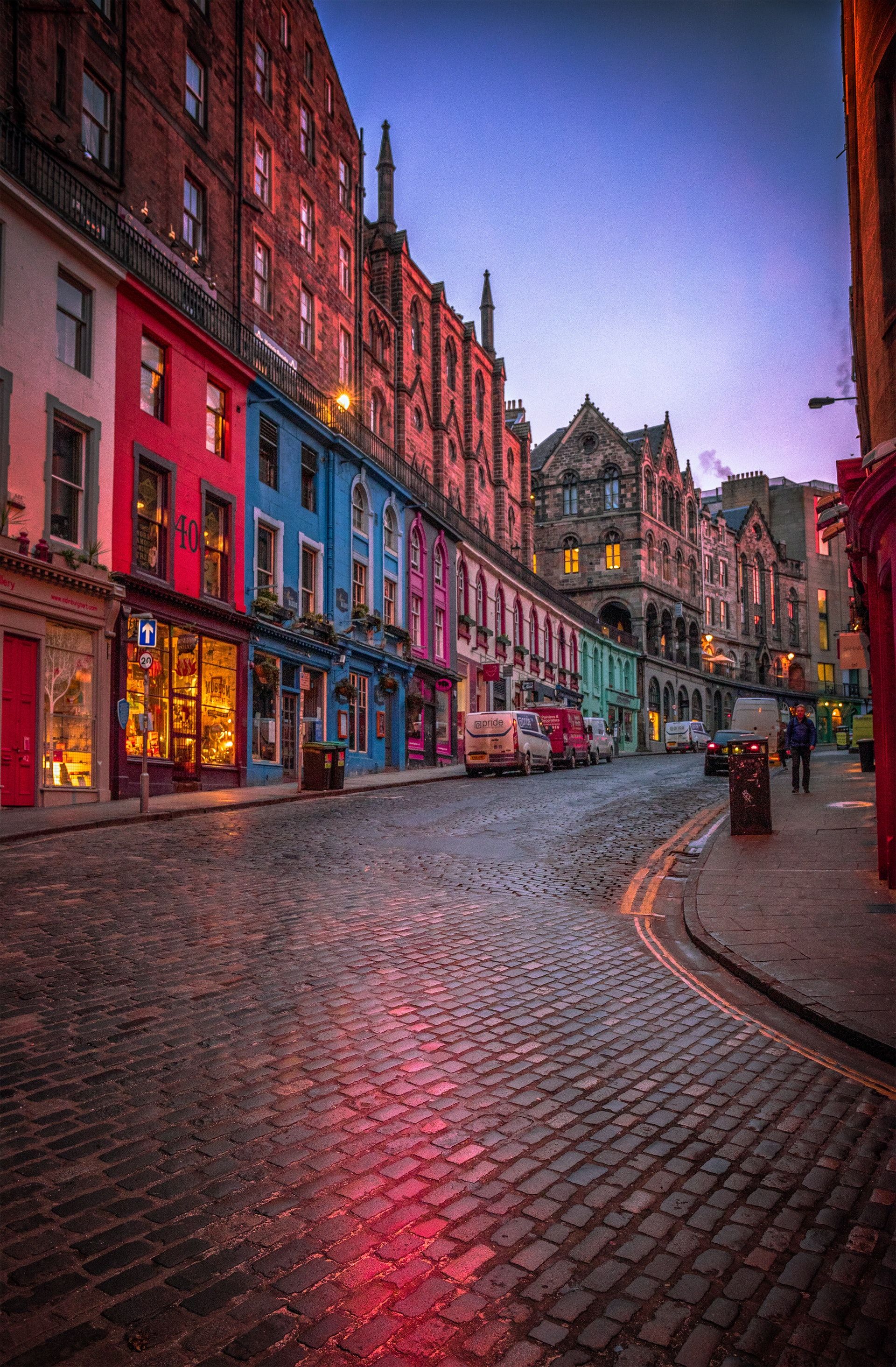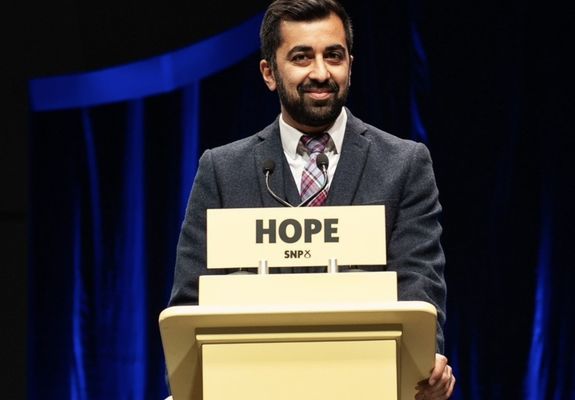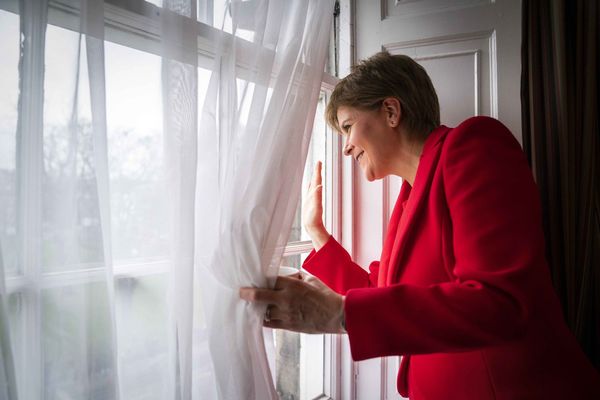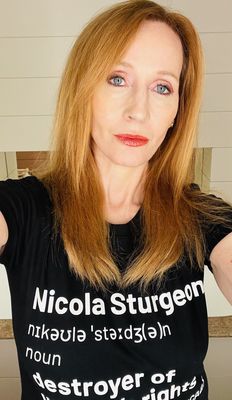They are two little words which drip history: Home Rule.
It is a century and a half since Irish leaders such as Isaac Butt first rallied behind the term to secure self-government, if not outright independence, for their country.
Butt and his allies inspired Scottish and Welsh campaigners who wanted to re-negotiate but not sever altogether their nations’ relationship with England.
Alba Party MP Kenny MacAskill suggest that now is time to "build a coalition for" Home Rule in Scotland. https://t.co/eQX0BikacR
— Grant McKenzie (@MrGrantMcKenzie) June 3, 2021
The old Home Rule campaigns faded away amid the bloodshed of World War One, replaced, across these islands, by a new 20th century vocabulary of 'independence' or 'devolution' or 'status quo.
But the old term this month made a comeback as Scots try to get their head around the results of May’s historic elections.
The SNP’s Nicola Sturgeon and her Scottish Green allies secured a majority for independence. But, amid a 'phoney war' in which politicians are more worried about Coronavirus than the constitution, UK Prime Minister Boris Johnson says he will not agree to a repeat of the 2014 referendum. At least for now.
Unionists even began speaking about Holyrood as the most powerful devolved parliament in the world. It was, of course, nothing of the kind. That honour, such as it is, went to Scotland’s near neighbour, Faroe, which has Home Rule.
Could Home Rule break this deadlock? That suggestion this month came from an unlikely source: Kenny MacAskill, the most senior of a clutch of politicians to break away from Ms Sturgeon’s SNP to join Alba, a supposedly more radical pro-independence party led by her predecessor, Alex Salmond.
MacAskill, now an MP in Westminster, served as Salmond’s justice secretary. The two men have a long history. MacAskill would have long been seen as a 'fundamentalist' on the SNP’s left, opposed to Salmond’s 'gradualist' stance of seeking independence through devolution.
An historic 'fundie' who represents Alba embracing Home Rule, something short of independence, came as a surprise.
But MacAskill sees Scotland stuck in a constitutional impasse. “Something needs to be done to break the logjam and move the country on, as the weekly cycle of ‘we demand it’ and ‘you’re not getting it’ is doing no-one any good,” the veteran politician wrote in The Scotsman, for decades both the paper of the Edinburgh establishment and the main forum for debate on the merits of devolution.
“There’s work to be done and if there’s ever a moment to think outside the box it’s now.
“If coronavirus recovery is the issue then powers to address it are required and the status quo’s inadequate.”
Gordon Brown's master plan revealed. Stand by for the love-bombing of 'middle Scotland'...
— Perthshire Independence Network (@perthshire_indy) June 7, 2021
via @SunScotNationalhttps://t.co/ewZG59KKAH
MacAskill is not alone. Some other veteran politicians are suggesting something similar. David Martin, for decades a Labour MEP and a former vice president of the European Parliament, has called for “independence in the UK”. Former Labour First Minister Henry McLeish has so long been a Home Ruler in all but name that journalists have privately put bets on when he will come out for independence.
A MORE FEDERAL UK
Gordon Brown, the former Labour chancellor and prime minister, has not quite embraced Home Rule but is one of many on the left or centre of Scottish politics to talk about a more federal UK, or ;devo-max' for Scotland.
Scotland has been promised more powers before in response to demands for independence. Devolution itself, was, according to its Labour architects, supposed to “kill nationalism stone dead”.
In 2014 there was the famous Vow - a tabloid front page signed by unionist leaders offering more powers.
Some did materialise. Unionists even began speaking about Holyrood as the most powerful devolved parliament in the world. It was, of course, nothing of the kind. That honour, such as it is, went to Scotland’s near neighbour, Faroe, which has Home Rule.
Does Scotland need more autonomy to quell independence demands? Or less?
The Home Rulers and Devo-Maxers are no longer just arguing with those who want complete independence. They are also fighting a real guard against what is being called 'muscular unionism', a more overtly British nationalist project that appears eager to chip away at devolution.
Support for closing Holyrood is too low to poll. A handful of parties which came close to such a proposition - including the robustly UK nationalist All4Unity of George Galloway - collapsed in May’s elections.
But mainstream Conservatives are eager to play a bigger role north of the border, provoking squeals of protests about “power grabs” from the SNP.
Much of the debate on this - ever since Brexit - has been on creating a British internal market, replacing the EU’s common market. That means Whitehall having powers in devolved areas, such as agriculture, which would previously have been held by the EU. UK Conservatives deny this undermines devolution - these powers were previously held in Brussels.
Their more eloquent representatives talked of 'shared' responsibility, when, as they see it, Scotland’s two governments each play a role in running the country.
But this policy come with a fair dose of nationalist symbolism.
TELEGRAPH: Billions for Scots as PM bids to save Union #TomorrowsPapersToday pic.twitter.com/IkeDUsiNU5
— Neil Henderson (@hendopolis) May 1, 2021
Johnson has called for more UK flags to be flown in Scotland, from government buildings. His Scottish Secretary is so enthusiastic for this kind of British nation-building that his pro-independence critics dub him Alister 'Union' Jack. Both men are keen to see red, white and blue on infrastructure projects funded by the UK. One such project - opposed as impractical and unnecessary by most Scottish transport experts - is a tunnel to Northern Ireland and its connecting roads and railways. That is firmly in devolved territory.
ROYAL FAMILY MOBILISED
The Sunday Times this month revealed what many had already suspected: that the royal family was also being mobilised to support the union. William and Kate were dispatched north this summer. There is talk of their taking up a semi-permanent base in Scotland.
Not all unionists are pleased by these developments. Many, especially from the old Labour or Lib Dem pro-devolution camps, feel they will be squeezed out in a battle between two nationalisms. They also think British nationalism will struggle in Scotland, where most people identify primarily as Scottish.
Gordon Brown, among others, insists there is a middle way for “patriotic” Scots, as he put it, to be British.
Daily Record: "The vow - 3 leaders sign promise to Scotland" pic.twitter.com/xAn9S5NpCm (via @suttonnick) #TomorrowsPapersToday #BBCPapers
— BBC News (UK) (@BBCNews) September 15, 2014
Campaigns for "Home Rule” peaked in the early years of the last century when the British Empire was still in its pomp.
Home Rulers were not always clear what they wanted but most seemed to envisage something akin to the semi-independence of the then dominions of Canada, New Zealand or Australia. Those countries, like the Republic of Ireland, are now fully sovereign. Scotland’s fate is still far from settled.









